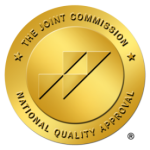Addiction is a pervasive issue that affects individuals from all walks of life. Despite the broad scope of its impact, a cloud of judgment and misconception often surrounds it. This stigma attached to addiction is not just detrimental to those who suffer but also to society at large. By understanding the nature of this stigma and working to combat it, we can pave the way for more effective and compassionate treatment solutions.
What is Stigma in Regards to Addiction?
Stigma, in the context of addiction, refers to the negative beliefs, attitudes, and stereotypes that people associate with those struggling with substance abuse. It manifests in various ways, from personal judgment and shame to institutional discrimination and exclusion.
Why is Stigma Harmful?
Prevents People from Seeking Help
The fear of judgment can deter individuals from admitting their problem and seeking the necessary treatment. Many would rather hide their addiction than face societal ostracism. Listed below are the most common issues associated with stigma in regards to addiction and why someone may refuse seeking help.
- Fear of Discrimination: An individual may avoid seeking treatment due to concerns about being treated unfairly in employment, housing, or social circles.
- Judgment Within Medical Settings: Despite healthcare professionals being trained to provide unbiased care, instances of judgment or inadequate care can deter individuals from accessing the services they need.
- Social Isolation: Individuals may worry about being ostracized by friends, family, and community, and thus, may hide their addiction instead of reaching out for help. This isolation can reinforce the cycle of addiction, making recovery even more challenging.
- Internalized Shame: Constant societal judgment can cause those with addiction to internalize the negative perceptions, leading to feelings of self-loathing and worthlessness. This emotional toll can further deter individuals from believing they deserve help.
Stigma Affects Mental Well-being
The internalized shame and guilt can exacerbate mental health conditions, making recovery even more challenging.
- Compounded Mental Health Issues: Many individuals with addiction may also suffer from co-occurring mental health disorders like depression or anxiety. The added burden of stigma can exacerbate these conditions, making a holistic recovery even more complex.
- Decreased Self-worth: The weight of societal judgment can lead to a diminished sense of self-worth, which can hinder motivation for recovery or cause feelings of hopelessness.
- Strain on Relationships: Internalized stigma can strain personal relationships, as the individual might pull away from loved ones or distrust offers of help, seeing them as judgmental or insincere.
- Suicidal Ideation: The compounded effects of addiction and the mental toll of stigma can lead to an increased risk of suicidal thoughts and behaviors among individuals.
Stigma Has Been Known to Limit Resources and Support
The stigmatization of addiction can lead to reduced funding for research, treatment facilities, and community programs. Listed below are various areas in which stigma has impacted addiction resources and support within our community.
- Reduction in Funding and Research: Societal stigma can influence policy decisions, potentially resulting in reduced funding for addiction research, prevention, and treatment. This lack of financial support can stagnate progress in effective treatment methods.
- Barriers in Policy Creation: Stigmatized views on addiction can lead to policies that focus more on punishment rather than rehabilitation. This not only limits resources for those seeking recovery but can also result in a greater societal burden, both financially and socially.
- Community Misunderstanding: Communities that hold strong stigmatized views may be resistant to hosting or supporting rehabilitation centers, harm reduction programs, or support group meetings, creating geographical barriers to treatment.
- Inadequate Training for Professionals: Without the proper resources and emphasis on the importance of unbiased treatment, healthcare professionals might not receive the necessary training to effectively address addiction without judgment.
Breaking Down the Stigma: Steps Forward
Educate and Inform
Many of the misconceptions about addiction stem from a lack of understanding. Offering educational resources, workshops, and seminars can challenge these preconceived notions.
Personal Stories
Hearing firsthand experiences humanizes the issue. Sharing success stories, struggles, and the journey to recovery can change perceptions.
Professional Training
Healthcare providers, counselors, and educators should be trained to handle addiction without bias. They play a crucial role in shaping societal views.
Support, Not Punish
Encouraging a culture of support rather than punishment can change the narrative. Instead of viewing addiction as a moral failing, it should be seen as a health issue that requires care and attention.
Promote Open Conversations
Encourage open dialogue about addiction in community settings, schools, and workplaces. When we talk openly about the challenges and solutions, it reduces the mystery and fear surrounding the topic.
The ripple effect of stigma is vast, touching on personal, societal, and institutional levels. Understanding these intricacies can help communities and policymakers make informed decisions to combat stigma and support individuals in their journey towards recovery.
Support from Friends and Family can Help Change Stigma Around Addiction
Friends and family members play a crucial role in the lives of those struggling with addiction. Their influence and support can be significant in challenging and reducing the stigma surrounding addiction. Here’s how they can help:
Educate Themselves on Addiction
Understanding Addiction
Friends and family should educate themselves about the nature of addiction, understanding it as a complex disease rather than a simple choice or moral failing. Numerous resources, from books to online courses, can provide insights into the science and psychology behind addiction.
Stay Updated
As addiction research progresses, new findings and treatment methods emerge. Staying informed ensures that they can offer relevant support.
Practice Compassion and Empathy
Non-judgmental Listening
Offer a listening ear without jumping to conclusions or passing judgment. Sometimes, just being heard can be therapeutic.
Empathize
Try to understand the emotions and challenges faced by the person with addiction. This doesn’t mean excusing harmful behaviors but rather approaching the situation with compassion.
Avoid Stigmatizing Language
Mindful Communication
Words matter. Avoid terms like “junkie” or “addict” as labels. Instead, use person-first language like “a person with an addiction.”
Promote Positive Narratives
Highlight stories of recovery and resilience rather than focusing solely on the negative aspects of addiction.
Provide Emotional Support
Reinforce Their Value
Remind them of their worth and the positive aspects of their character, outside of the challenges posed by addiction.
Encourage Professional Help
Encourage seeking professional support, emphasizing that it’s a sign of strength, not weakness.
Advocate for Supportive Policies
Raise Awareness
Participate in or organize community events or seminars that aim to educate the public about addiction.
Engage with Lawmakers
Advocate for policies that prioritize rehabilitation over punitive measures and support increased funding for addiction research and treatment.
Participate in Family Therapy
Seek Counseling
Family therapy can provide tools and strategies to cope with the challenges posed by addiction and can help in understanding the dynamics that might contribute to it.
Join Support Groups
Groups like Al-Anon provide support for families of individuals with addiction, offering a platform to share experiences and learn from others.
Challenge Stigmatizing Views
Speak Out
If someone is spreading misconceptions or stigmatizing views about addiction, gently correct them with facts and personal experiences.
Promote Inclusivity
Encourage spaces where individuals with addiction are treated with the same respect and dignity as anyone else.
Celebrate Small Victories
Acknowledge Progress
Recovery is a journey with ups and downs. Celebrate the milestones, no matter how small, reinforcing the progress made.
Set Boundaries
Protect Personal Well-being
While supporting a loved one, it’s essential to maintain personal well-being. Setting boundaries ensures that one can provide support without becoming overwhelmed or enabling harmful behaviors.
Stay Resilient
Stay Hopeful
Recovery can be a long process, but maintaining hope and a positive outlook can be contagious, offering encouragement to the person struggling with addiction.
Remember, while friends and family can play a vital role in combating stigma, it’s also essential for them to seek support for themselves. Addiction affects the entire support system, and everyone involved needs care and understanding.
Understanding Stigma in the Context of Addiction
The journey to break the stigma of addiction is a collective effort. While it may seem like a daunting task, every conversation, every shared story, and every gesture of support brings us a step closer to a world where individuals with addiction can seek help without fear of judgment.
For those currently facing addiction, remember: you deserve compassion, understanding, and support. Your journey matters, and there is hope for recovery. For those looking from the outside in, take a moment to challenge your own perceptions and be a beacon of support in someone’s recovery journey.






